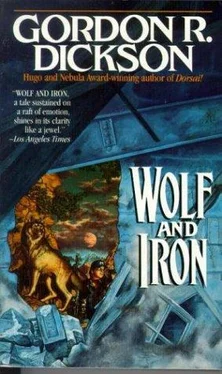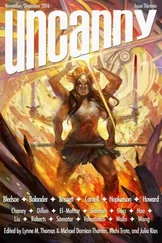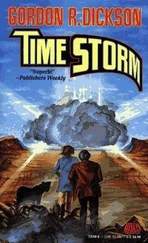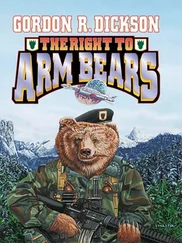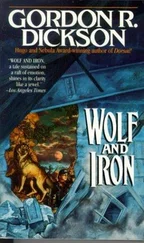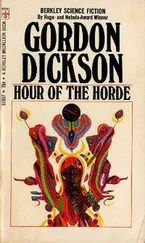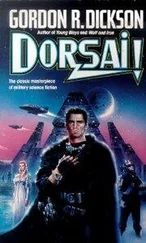“He try to push you toward architecture at all?” Paul asked.
Jeebee shook his head.
“No,” he said thoughtfully. “Neither he nor my mother really pushed me anywhere. They loved me, all right. But they were a couple of strange people, in some ways. They didn’t show much in the way of affection, to me or even to each other. My mother was an academic. She taught history on the university level. Usually she was stuck in her job someplace, and I moved around the country with Dad. It was that way most of the time I was going through grade school and high school.”
He remembered it now, with a particular sharpness. He had been taller and skinnier than most boys his own age, and uncoordinated. Each new schoolroom had become an arena in which he knew in advance he would be tried, tested, and found wanting. Schoolmates his own age, but much smaller and better coordinated, were able to bully him, making him in his own eyes, as well as those of others, a weakling.
He had grown into adulthood coming to think of himself as that, to accept the fact he could not compete with the rest of the world physically. Then his mother had died suddenly of viral pneumonia when he was sixteen. And then, when he was away at college, his father was killed in a construction accident.
He told Paul something about this.
“Pretty much a loner, weren’t you?” said Paul.
That was true enough, Jeebee thought. Among the study group at Stoketon he had been a maverick, more than slightly suspected as the recipient of special favor from Bill Bohl, the director, but respected nonetheless.
“I guess you could say so,” he said to Paul. “I took sociology as an undergraduate. But there was always something lacking in it for me.”
“How do you mean, lacking?”
“Well, I came to understand it later,” said Jeebee, slipping unthinkingly into a more academic way of talking. “Sociology was really badly indifferent in some ways to the ecological factors in which social and cultural processes are rooted. Besides that, it was unsophisticated in the development of mathematical models of the kind that were revolutionizing other social sciences.”
“So?” said Paul. “What did you do?”
“Well, I’d already decided that I wanted to be an academic,” Jeebee said. “By the time I was ready to apply to graduate schools, economic geography seemed the best approach for me to the questions I was after.”
“And where was this?” Paul asked.
“This was at the main campus of the University of Michigan at Ann Arbor,” said Jeebee. “I was very lucky. I got Dr. Bill Bohl for an adviser.”
“Bill Bohl?” echoed Paul. “Don’t think I ever heard of him.”
“Probably you wouldn’t, unless you were an academic yourself, and working in the same area or a related area,” Jeebee said, “but it was the best thing that ever happened to me. He was tremendous. He was fifty-two years old at the time I met him, and he was widely known and respected for his contributions to classical economics and innovative applications of general-systems problems in social ecology.” Jeebee laughed.
“You wouldn’t think he carried all that clout to look at him,” he said. “He was young looking for his years, but bald as an egg, and he had a face like a bulldog with a body like an undergraduate fullback. Meeting him, you probably wouldn’t have liked him, first off. He was direct to the point of being almost brutal.”
“Well, wasn’t he what he seemed to be?” Paul asked. Jeebee shook his head.
“I got to know him very well,” he said. “Behind the way he talked and acted he was really very sensitive to the human realities underlying the abstractions with which we all worked. In fact, I still think he’d deliberately cultivated that tough appearance of his to hide his sensitivity toward the people he had to work with.”
“So you liked him,” Paul said.
“Yes,” said Jeebee, “and he liked me—strangely enough.”
“Why, strangely enough?” said Paul. “People like each other or they don’t. You can’t pin down reasons.”
“Oh, he told me some reasons he liked me, from time to time,” Jeebee said. “He thought I had a remarkable enthusiasm, and he told me I had a highly unusual, intuitive ability to represent social processes in the language of mathematics.”
“Did you?” asked Paul.
“Yes,” Jeebee said slowly. “At least as far as the mathematics went, I guess I did. At least compared with the people I worked with.”
There was another stretch of silence. It was a comfortable silence during which Jeebee was thinking of his academic days and of Bill Bohl. He was brought back to the present by Paul.
“Well, there you were, studying for your doctorate with this Bill Bohl as an adviser,” said Paul. “How did you get from there to Stoketon?”
“Stoketon was a real break for me,” Jeebee said with enthusiasm, “and something I never would have got if Bill hadn’t had such a high idea of me. You see, even before I’d finished my doctoral thesis, Bill had let me work with him on half a dozen articles that promised to open new avenues of approach to mathematical modeling. The articles got quite a bit of attention.”
“That’s important?” said Paul.
“That’s very important,” Jeebee answered, “particularly for someone at the stage I was at, then.” He paused.
“Then, when I finished my doctoral thesis, Bill talked me into staying on at the university, on a postdoctoral fellowship. It paid next to nothing, but the main thing was it let me go on working with Bill; and this paid off handsomely later on, when Bill was awarded a founder’s grant to establish the Center for the Study of Quantitative Sociodynamics—the Stoketon Group.”
“He invited you in on that, did he?”
“He did more than just invite me,” Jeebee answered. “He’d actually written me into the grant, with the grant paying my salary. All that was required after that was for the university to give me its blessing—award me a nominal academic title that made me eligible for fringe benefits and gave me access to their libraries; that went along with the faculty post. At Stoketon, I was a resident research fellow with a permanent position—as distinguished from the experts we had, who came, stayed for a while, and then left.”
“I get the idea you liked it there,” said Paul.
“I did,” Jeebee said, remembering, “I really did. I was kind of a maverick, or at least, a lot of them thought of me as sort of an oddball. But it’s great working with people who are good themselves; and we all got along very well. I think I really turned into something at Stoketon. Pity was, it was only along the lines of the academic work I was doing. As far as the outside world was concerned—the kind of thing I need to survive nowadays—I was just as much a loner and as much an innocent as I’d ever been. That was one of the reasons my neighbors chased me out, finally.”
“You weren’t going back to your brother’s until that happened?” said Paul.
“Oh yes. Of course I was,” said Jeebee. “The Collapse had hit. We’d no connection with any of the cities around us anymore. The water was off. There was no more electricity. Stoketon was turning into a little, tight, armed community. The thing was, I wasn’t really part of it. I’d almost been part of it, when a woman who lived there worked for me. But when she quit, it was a signal—even though I didn’t know it at the time—that I was being cut off and labeled an outsider. Luckily, I’d already started accumulating some things to go west with—including an electric-driven bike. Anyway, when I finally did leave, it was with some of them shooting at me.” He hesitated.
“I lost the bike a couple of weeks back in a small town, where I stopped, thinking maybe I could do some trading. That was the same town where I picked up Wolf.”
Читать дальше
